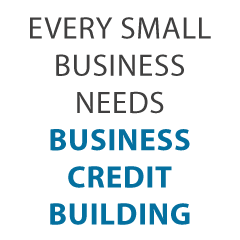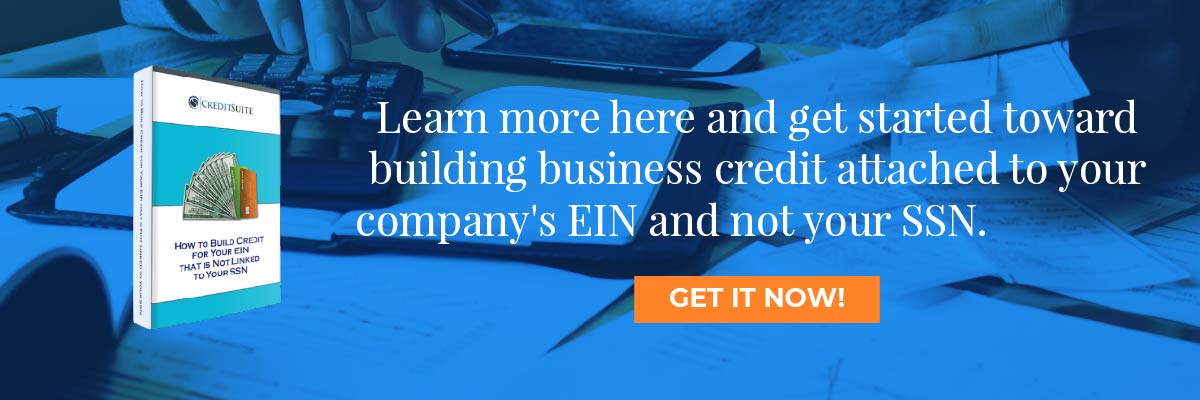- Connect With Us!
- (877) 600-2487
- info@creditsuite.com
How to Set Up a New Business in South Carolina
Published By Janet Gershen-Siegel at April 10th, 2019
Starting a Business in South Carolina
A new business in South Carolina is not out of reach. So have you been wondering: how do I start a business in South Carolina? And more importantly, can I do so no matter what the economic conditions are? Can I start a new business in South Carolina during a recession?
New Business in South Carolina: Pros and Cons
Business Insider says that South Carolina is the seventh worst state for starting a new business, per a 2016 article. And it is no wonder, as many of the numbers are mediocre.
Also, the state’s startup score is low, and so is the rate of business survival. New businesses will have a larger pool of workers available to hire than most states. But that does not help too much. This is because the state has the third lowest GDP per capita, at $36,174.
Recent Changes?
The numbers are … interesting. In 2018, Forbes redeemed South Carolina with a number 15 slot. But also in 2018, Fit Small Business ranked South Carolina all the way at the bottom.
So, which one is right?
No matter what, keep in mind the three sites all have differing methodologies.
Forbes praises South Carolina for its fifth-best regulatory environment. The state also got high marks for growth prospects, economic climate, and labor supply. It was right in the middle for business costs, but quality of life was ranked at a measly 44th.
Fit Small Business paints a far different picture of South Carolina. The state has a middle of the road (a rank of 26) ranking for cost of living. After that, the numbers only go downhill, with the worst costs of starting a business and a 47th ranking for quality of life. All over metrics were in the mid- to lower-thirties, giving South Carolina very little to crow about in the Fit Small Business article.
Irrespective of the Forbes ranking, South Carolina does not appear to have changed significantly. Only you can decide if starting a business there is worth your while.
Start a New Business in South Carolina – South Carolina Top Industries
Per the South Carolina Department of Commerce, the biggest industries in South Carolina are advanced materials, aerospace, and advanced manufacturing. More top industries are automotive, agribusiness, distribution and logistics. Yet more top industries are office and shared services, and life sciences. Also, as in many states, retail trade is another sector which employs a lot of people.
Smart business owners can find new opportunities. Work with bigger industries in the state. Offer goods or services such as computer support such as data and programming. Other ideas are trucking for any industry. More ideas are also the development and distribution of safety equipment.
Here is exactly how to start a business in South Carolina.
Start a New Business in South Carolina – South Carolina New Business Secretary of State Requirements
Register a Business Name
Reserve or register a business name on the South Carolina Secretary of State’s website .
Business Permits and Licenses
The South Carolina Business One Stop lists licensing and registration information. Also consult the South Carolina Department of Labor, Licensing, and Regulation.
Corporations
South Carolina corporations must have unique names. Make an extensive search of online records and other archives and catalogs to find out if a name is available. Start by searching the database of South Carolina corporations at the South Carolina Secretary of State website.
Corporate Name Reservations
Name reservations are optional in South Carolina. To reserve a particular corporate name, a business owner can submit a name reservation application to the office of the South Carolina Secretary of State. Find the name reservation application form at Reserve A South Carolina Corporation Name in the South Carolina Secretary of State website’s Library of Forms and Fees. The name will then be reserved for 120 days. The filing fee is $10.00.
In the state of South Carolina corporate names must include the word “corporation,” “incorporated,” “limited,” or “company”. Or they can also have an abbreviation of one of these words.
A corporation needs a registered agent to act as an agent for service of process and receive all legal and tax documents for it. Choose an adult resident of South Carolina or a corporation to act as a registered agent. Or use of various companies that provide registered agent services.
Local Permits and Licenses
Check with your local municipality, city or county office or website. See if there may be any local licensing or permit requirements.
For example, in Charleston, go to the New Business Licenses page on the city of Charleston website.
Start a New Business in South Carolina – Business Registration
The South Carolina Secretary has a website, “Business Entities Online“. That is where you can register.
Tax Registration
Go to MyDORWAY. It is the South Carolina Department of Revenue portal. You can apply for your tax number there.
Start a New Business in South Carolina – Virtual Offices
Alliance offers South Carolina virtual business office space in North Charleston and Mount Pleasant. So go to Regus for South Carolina virtual office space in Greenville.
Also, go to DaVinci for South Carolina virtual offices in North Charleston, North Myrtle Beach, and Spartanburg.
More options may be virtual business office space in nearby states. These are Georgia, North Carolina, and also Tennessee.
Start a New Business in South Carolina – Establish Business Credit
Business credit is credit in a small business’s name. It doesn’t link to an owner’s consumer credit, not even when the owner is a sole proprietor and the only employee of the company.
Accordingly, a business owner’s business and consumer credit scores can be very different.
The Advantages
Due to the fact that company credit is separate from individual, it helps to protect a small business owner’s personal assets, in case of legal action or business bankruptcy.
Also, with two distinct credit scores, a business owner can get two different cards from the same vendor. This effectively doubles purchasing power.
Another benefit is that even startup companies can do this. Heading to a bank for a business loan can be a formula for frustration. But building business credit, when done the right way, is a plan for success.
Individual credit scores depend on payments but also various other elements like credit utilization percentages.
But for company credit, the scores really only hinge on whether a company pays its bills punctually.
Learn more here and get started toward building business credit attached to your company’s EIN and not your SSN.
The Process
Establishing business credit is a process, and it does not occur without effort. A small business must actively work to establish company credit.
However, it can be done readily and quickly, and it is much quicker than establishing individual credit scores.
Vendors are a big component of this process.
Doing the steps out of sequence will result in repetitive denials. Nobody can start at the top with small business credit. For instance, you can’t start with retail or cash credit from your bank. If you do, you’ll get a denial 100% of the time.
Start a New Business in South Carolina – Company Fundability
A small business has to be fundable to lending institutions and merchants.
That’s why, a small business will need a professional-looking web site and e-mail address. And it needs to have website hosting from a merchant like GoDaddy.
Also, company phone and fax numbers ought to have a listing on ListYourself.net.
Likewise, the business telephone number should be toll-free (800 exchange or the equivalent).
A small business will also need a bank account devoted strictly to it, and it needs to have all of the licenses necessary for operating.
Learn more here and get started toward building business credit attached to your company’s EIN and not your SSN.
Dealing with the Internal Revenue Service
Visit the IRS website and get an EIN for the small business. They’re free of charge. Choose a business entity like corporation, LLC, etc.
A company can get started as a sole proprietor. But they will probably want to switch to a form of corporation or an LLC.
This is in order to minimize risk. And it will maximize tax benefits.
A business entity will matter when it comes to tax obligations and liability in the event of a lawsuit. A sole proprietorship means the entrepreneur is it when it comes to liability and taxes. Nobody else is responsible.
Sole Proprietors Take Note
If you run a company as a sole proprietor, then at the very least be sure to file for a DBA. This is ‘doing business as’ status.
If you do not, then your personal name is the same as the business name. As a result, you can end up being directly responsible for all small business debts.
In addition, according to the IRS, by having this structure there is a 1 in 7 probability of an IRS audit. There is a 1 in 50 probability for corporations! Avoid confusion and considerably reduce the odds of an Internal Revenue Service audit at the same time.
Start a New Business in South Carolina – Beginning the Business Credit Reporting Process
Start at the D&B web site and obtain a free D-U-N-S number. A D-U-N-S number is how D&B gets a business into their system, to generate a PAYDEX score. If there is no D-U-N-S number, then there is no record and no PAYDEX score.
Once in D&B’s system, search Equifax and Experian’s sites for the small business. You can do this at fastcs.wpengine.com/reports. If there is a record with them, check it for accuracy and completeness. If there are no records with them, go to the next step in the process.
In this manner, Experian and Equifax will have activity to report on.
Vendor Credit Tier
First, you must build trade lines that report. This is also referred to as the vendor credit tier. Then you’ll have an established credit profile, and you’ll get a business credit score.
And with an established business credit profile and score you can begin to obtain credit in the retail and cash credit tiers.
These kinds of accounts often tend to be for the things bought all the time, like marketing materials, shipping boxes, outdoor work wear, ink and toner, and office furniture.
But to start with, what is trade credit? These trade lines are credit issuers who will give you starter credit when you have none now. Terms are typically Net 30, instead of revolving.
Therefore, if you get an approval for $1,000 in vendor credit and use all of it, you need to pay that money back in a set term, like within 30 days on a Net 30 account.
Details
Net 30 accounts have to be paid in full within 30 days. 60 accounts have to be paid in full within 60 days. In contrast to with revolving accounts, you have a set time when you have to pay back what you borrowed or the credit you made use of.
To launch your business credit profile the right way, you ought to get approval for vendor accounts that report to the business credit reporting bureaus. As soon as that’s done, you can then make use of the credit.
Then pay back what you used, and the account is on report to Dun & Bradstreet, Experian, or Equifax.
Vendor Credit Tier – It Makes Sense
Not every vendor can help in the same way true starter credit can. These are merchants that will grant an approval with very little effort. You also need them to be reporting to one or more of the big three CRAs: Dun & Bradstreet, Equifax, and Experian.
You want 5 to 8 of these to move onto the next step, which is the retail credit tier. But you may have to apply more than once to these vendors. So, this is to confirm you are trustworthy and will pay in a timely manner.
Retail Credit Tier
Once there are 5 to 8 or more vendor trade accounts reporting to at least one of the CRAs, then move onto the retail credit tier. These are service providers such as Office Depot and Staples.
Just use your SSN and date of birth on these applications for verification purposes. For credit checks and guarantees, use the small business’s EIN on these credit applications.
One such example is Lowe’s. They report to D&B, Equifax and Business Experian. They want to see a D-U-N-S and a PAYDEX score of 78 or better.
Fleet Credit Tier
Are there 8 to 10 accounts reporting? Then move onto the fleet credit tier. These are companies such as BP and Conoco. Use this credit to buy fuel, and to fix, and maintain vehicles. Just use your SSN and date of birth on these applications for verification purposes. For credit checks and guarantees, make certain to apply using the business’s EIN.
One such example is Shell. They report to D&B and Business Experian. They need to see a PAYDEX Score of 78 or more and a 411 small business telephone listing.
Shell might say they want a specific amount of time in business or revenue. But if you already have enough vendor accounts, that won’t be necessary. And you can still get approval.
Learn more here and get started toward building business credit attached to your company’s EIN and not your SSN.
Cash Credit Tier
Have you been responsibly handling the credit you’ve up to this point? Then move onto the cash credit tier. These are service providers such as Visa and MasterCard. Just use your SSN and date of birth on these applications for verification purposes. For credit checks and guarantees, use your EIN instead.
One example is the Fuelman MasterCard. They report to D&B and Equifax Business. They need to see a PAYDEX Score of 78 or higher. And they also want you to have 10 trade lines reporting on your D&B report.
Plus, they want to see a $10,000 high credit limit reporting on your D&B report (other account reporting).
Plus, they want you to have an established small business.
These are service providers like Walmart and Dell, and also Home Depot, BP, and Racetrac. These are normally MasterCard credit cards. If you have 14 trade accounts reporting, then these are feasible.
Start a New Business in South Carolina – Monitor Your Business Credit
Know what is happening with your credit. Make sure it is being reported and attend to any errors ASAP. Get in the habit of checking credit reports and digging into the specifics, and not just the scores.
We can help you monitor business credit at Experian and D&B for only $24/month.
See: fastcs.wpengine.com/monitoring.
Update Your Record
Update the data if there are errors or the relevant information is incomplete.
Fix Your Business Credit
So, what’s all this monitoring for? It’s to challenge any mistakes in your records. Errors in your credit report(s) can be fixed. But the CRAs generally want you to dispute in a particular way.
Disputes
Disputing credit report mistakes usually means you mail a paper letter with copies of any proof of payment with it. These are documents like receipts and cancelled checks. Never send the originals. Always mail copies and retain the original copies.
Fixing credit report errors also means you precisely detail any charges you contest. Make your dispute letter as clear as possible. Be specific about the problems with your report. Use certified mail so that you will have proof that you sent in your dispute.
Start a New Business in South Carolina – A Word about Business Credit Building
Always use credit sensibly! Never borrow beyond what you can pay off. Keep an eye on balances and deadlines for payments. Paying off on schedule and in full will do more to boost business credit scores than pretty much anything else.
Growing business credit pays. Excellent business credit scores help a company get loans. Your lending institution knows the small business can pay its debts. They recognize the company is authentic.
The business’s EIN links to high scores and lenders won’t feel the need to require a personal guarantee.
Business credit is an asset which can help your company for years to come.
Learn more here and get started toward opening a new business in South Carolina.
Want to start a new business someplace else in America? Then check out our handy guide to starting a business in any state in the country.
South Carolina’s Response to COVID-19
Here’s what South Carolina is doing about COVID-19. On March 13, Governor Henry McMaster declared a state of emergency. For restaurants, the Department of Health and Environmental Control will not be conducting routine inspections. However, they will come and provide a non-graded evaluation and consultation upon request.
South Carolina small businesses are eligible for emergency disaster loans from the SBA.
See: governor.sc.gov/news/2020-03/gov-henry-mcmaster-declare-state-emergency-order-lancaster-kershaw-county-schools and scdhec.gov/infectious-diseases/viruses/coronavirus-disease-2019-covid-19/retail-food-service-establishments-covid-19
See also: wpde.com/news/local/small-businesses-impacted-by-coronavirus-can-now-apply-for-disaster-assistance

 " class="attachment-blog-single size-blog-single wp-post-image" alt="Get Business Credit Cards for New Businesses Credit Suite-Business Line of Credit Decoded" title="Get Business Credit Cards for New Businesses">>
" class="attachment-blog-single size-blog-single wp-post-image" alt="Get Business Credit Cards for New Businesses Credit Suite-Business Line of Credit Decoded" title="Get Business Credit Cards for New Businesses">>